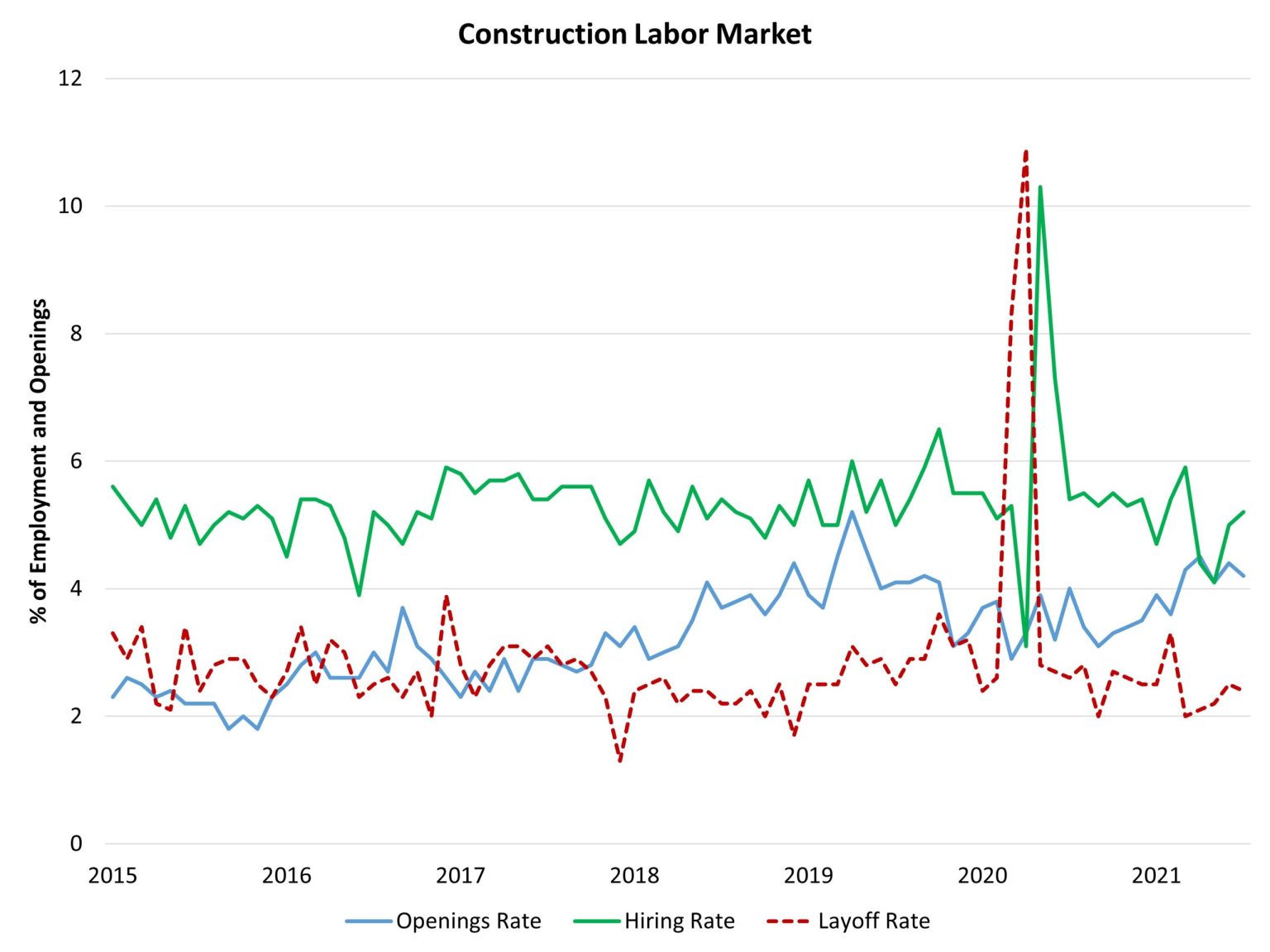Policy
As Stresses Pile Up, People Mean More Than Ever As Ways Forward
None of today's array of risks, threats, and challenges is insurmountable if leaders sustain the trust, resolve, and focus of team members.

Let me ask. Which pressure point has you vibrating the most, now? What's "keeping you up," especially as a mixed-signals-first-three-quarters of 2020 flops over to a moment-of-truth-fourth-quarter for the multi-trillion-dollar residential real estate and construction community for business, consumers, and the workforce?
Call October 2021, a pressure-cooker moment for real estate investment, construction operations, and for the ultimate end-users of building's business community, consumers and workers.
Pick your poison from a half-dozen walls of worry.
- Rumblings of core inflation's potential to ignite an interest-rate jump that could mark the end of households' monthly payment halcyon days?
- A longer-than-predicted duration and wider-than-expected ripple-effect of supply chain disruption has eroded delivery schedules, chipped away at net margins, and obscured operational planning measures critical to 2022 budget planning.
- New individual and corporate taxation scenarios – carrying potential impacts to 2022 tax liability – loom as a policy wet blanket of risk to investment and resource allocation.
- The U.S. Treasury's "Doomsday Clock," ticking – apparently inexorably – toward a default barring an 11th-hour measure to lift the debt ceiling, pivoting into a cascade of unknown-unknowns for the economy, business, and households.
- Housing affordability's tolerances and elasticity are undergoing – in classic spotty and choppy real estate style – stress. Monthly payment power is hanging in the balance, a sharp delimiter of total demand.
- Jobs. Yes, jobs. However, not necessarily in the standard-issue concern over new payroll positions, wage increases, and the benefit that produces. No, we're talking about dreaded quits, talent hemorrhage, brain drains, and capability loss in an economic inflection point for people and their choices as to whether to seek employment, where, and why.
In this sense a lower unemployment rate is a menacing negative, and job quits signal intensifying challenge ahead.
Why is that?
In The Builder's Daily's view, the sixth bullet point eclipses the other five red flag pain points right now by a longshot, and for two reasons.
- One: At the micro-enterprise level, if you have the talent, heart, and engagement among your team members, working as a collective toward your business goals, you can probably be fit to weather, adapt, and, ultimately, flourish in all of the five adverse scenarios above.
- Two: It's the single dimension – among the half-dozen dark areas of uncertainty, growing risk, and threat – that company leaders can directly impact, exert agency, and manage through turbulent times.
Anecdotally, what we're picking up is word of a great deal of pressure, frustration, exasperation, and anxiety at the field level of many businesses. Only now has the writing on the wall – impacting their numbers, their bonuses, their longer-term job-security, and, in some cases, their livelihoods – become clearer.
At a high level, the numbers matter most. Nobody in the building lifecycle value chain carries illusions that, at the end of the day, numbers – as in start-to-completion deliveries, gross margins, net margins, new permits pulled, new orders, etc. – drive livelihoods, or don't.
Right now, numbers are in a jumble. Supply chain-disruption-driven schedule elongation, mis-sequencing of building cycle pathways, materials delivery scrambles, re-routing through critical paths, real-time audibles on construction crew tasking, etc. are occuring at scale.
Leaders, their reports, and their managers are operating at full-speed and adrenaline-fueled tactical triage at scale.
When it comes to the actual numbers as they ultimately measure up to models, forecasts, and accountability to investors, lenders, and other stakeholders, many, many builders are in a limbo of not really knowing what they don't know.
Until a weather-tight rough frame is done, and a project can progress to inspection pre-drywall and finishes, predicting timing and cost is a crapshoot.
Multiply that scenario time a huge number of started, framed, and progressing new-homes, that may or may not have snagged up against a critical-path obstacle that leaves the supervisor treading water.
It's this juncture the business's leaders need to throw themselves into, to understand, relate to key performance metrics and how they roll up, and pivot to managed best practice and a big push of commitment at the field level.
The threat – if that doesn't happen – is quits. Talent drain. The ability of your better team members leaving to pursue their interests and potential elsewhere.

Don't believe me on this. Here's smarter and better spoken perspective from Humantiy Works co-founders Debbie Cohen and Kate Roeske-Zummer, from a Harvard Business Review insight piece that so well applies to what we'd call a Q4 pressure-cooker crisis for homebuilding organizations and their partners.
Cohen and Roesk-Zummer write:
The best way to stabilize your business is to stem the tsunami of attrition and increase your retention. In the frantic need to hire more people, the group we often forget to attend to are the folks who stay — those showing up day-in and day-out shouldering the work that needs to get done. Think about what these people — the ones who are here, working for and with you — need now. The short answer is they need to be seen for who they are and what they are contributing. It’s your job as the leader to make sure they’re getting the recognition they deserve."
Land, capital, materials, and people are the finite resources with which real estate, construction, manufacturing, distribution, architecture, and engineering firms ply their magical powers.
People often get the shortest shrift when it comes to crisis; that's because cycles always – up to now – have made people a cheaper resource in the early wake of a downturn, allowing for a quicker, stronger rebound later.
However, in the last leg of 2021, people – as in your team members – are counting on a trust factor and a return on their beyond-the-call-of-duty efforts to bring new homes across the line this year. That's why the perspective of people like Debbie Cohen and Kate Roeske-Zummer stands as a brightline for housing leadership right now.
People are part of what leaders can control. And they're the key to staying fit to flourish come what may on all of the other exogenous challenges of the day and the decade.
Join the conversation
MORE IN Policy
Big Gov And Wall Street Go Toe To Toe Over Private Equity Influx Into SFR
In Capitol Hill hearings, surging corporate private equity investment in residential real estate -- particularly into single-family rental portfolios -- gets the third degree
Twin Risks — Local & Federal — Loom On Built-For-Rent Horizon
With monster-sized wagers, investors are thronging into the newly built single-family-rental market, confident in a market tilting in their favor is high. Still, what about all that entitlement risk?
What Is Affordable? Do Market Rate Builders Need To Know?
Monthly payment power equates to how builders measure their ability to build and deliver affordably. Interest rates are the biggest stressor to this benchmark in the near future.
